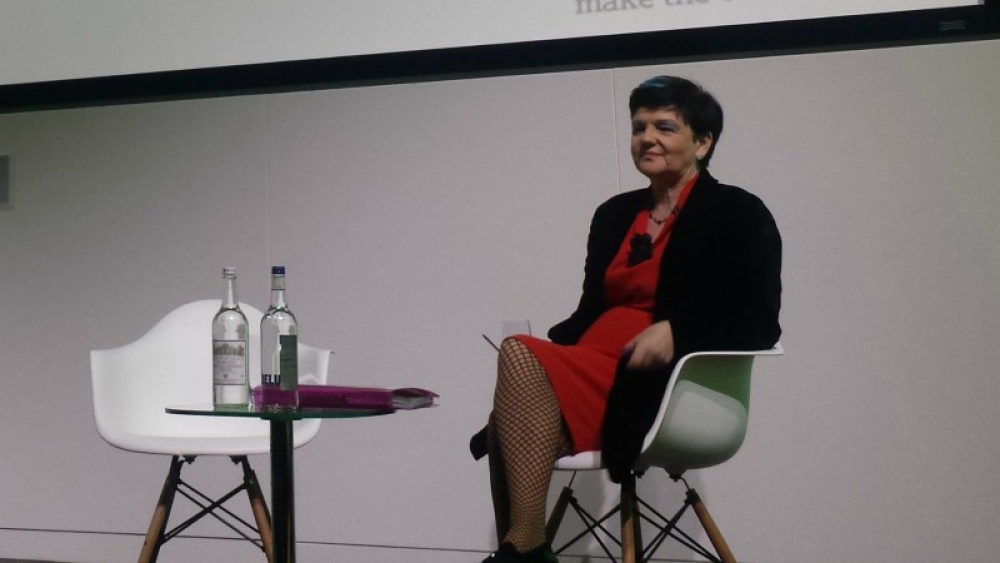Data protection 2016: Baroness Neville-Rolfe
29 Feb 2016

Minister for Intellectual Property Baroness Neville-Rolfe went out of her way to, "Lift the spirits" in the face of the EU GDPR, speaking to delegates at the DMA's Data protection conference 2016
Introducing herself as the 'Minister for difficult problems’, Baroness Neville-Rolfe, a former Tesco executive, said, "I’m keen to increase competitiveness, especially for creative and digital businesses," she said.
"We benefit from the digital market in the EU and to help this we have to handle data responsibly," she said. "Consumer rights are top of our list of concerns. Rights and nuisance calls are top of this agenda."
GDPR
Now the EU GDPR text has been agreed, she noted that, "We are close to adopting new regulation - the draft covers much of the same ground as our domestic data protection act.
"We are looking at spring 2018 for implementation. It will be a complex and demanding implementation process and ICO help here will be important," she said.
"I encourage you to prioritise preparation and get ahead while you are not on deadline. Tell that to your children too," she said.
Privacy Shield
On the question of the new alternative to Safe Harbour, the Privacy Shield, she said there have been, "Intense negotiations to secure a new agreement. I was glad to see how determined US negotiators were to get a new agreement through. I advise companies to take stock of current arrangements for data transfer," she said.
Nuisance calls
She said there should be a clear distinction between legitimate and rogue telemarketing, "We should not dismiss this as the unfortunate byproduct of the growth of data-led marketing. It is a form of harassment.
"The damage this can cause is immense. Particularly for vulnerable people," she said, giving the example of a letter she received from an elderly person who had become trapped due to the scourge of nuisance calls, having disconnected her telephone. She felt isolated and close to suicide, the Baroness recounted.
"Telemarketing has legitimate role in giving customers what they want," she said.
Fundraising
On fundraising, she said the death of Olive Cooke had highlighted, "Unacceptable practices by charity fundraisers, I have to say with the help of the media. The new funding regulator will ensure higher standards," she said.
"We want charities to engage constructively with these plans. The Government is not seeking to undermine legitimate fundraising, but to address bad practices," she said.
Regulation
The Baroness said they were exploring more regulation, "This could include putting the ICO’s direct marketing guidance on a statutory footing. This would provide clarity on the responsibilities of those who instigate direct marketing calls; clarify the rules around time limits on third party consent; and make it easier for the ICO to take action against those who breach the rules."
"We are also considering the possibility of extending the ICO’s powers of compulsory audit to organisations responsible for generating nuisance calls, including data brokerage organisations and list generators. This is similar to the measure we introduced in February last year that enables the ICO to assess the data protection practices of NHS bodies.
"Regulation is one tool but it needs to be supported by technical innovation," she said, giving the example of the current government competition to find technological answers to nuisance calls.
Consultations
Talking about the current regulation around prosecuting rogue marketers, and a recent consultation into making display of the CLI (caller display) mandatory for marketing calls, the Baroness said, "Failure to supply CLI makes it difficult to pursue action. This change would mean all direct marketing callers must include CLI. My first impression is overwhelming support for our proposals.
"And to those organisations whose business relies on direct marketing, I would ask you to consider registering your organisation with the Telephone Preference Service Assured Scheme. This scheme complements a lot of the work Government and regulators are doing to help combat nuisance calls. It helps companies by ensuring they comply with the law and best practice guidelines," she said.
Consumer attitudes
"There are things you can do as a consumer. I now welcome the odd nuisance call. I tell them that they are not entitled to call again. I know, I say, because I am the minister responsible," she said.
"At its core, data protection is actually about simple things. Respect, trust, integrity and professionalism. Only with the foundations I have talked about today - transferring data safely, building consumer confidence that we will tackle unwanted and aggressive sales calls, and protecting people’s data rights – can this work for all our benefit.
"I look forward to working with you all on the many opportunities ahead," she said.




Please login to comment.
Comments